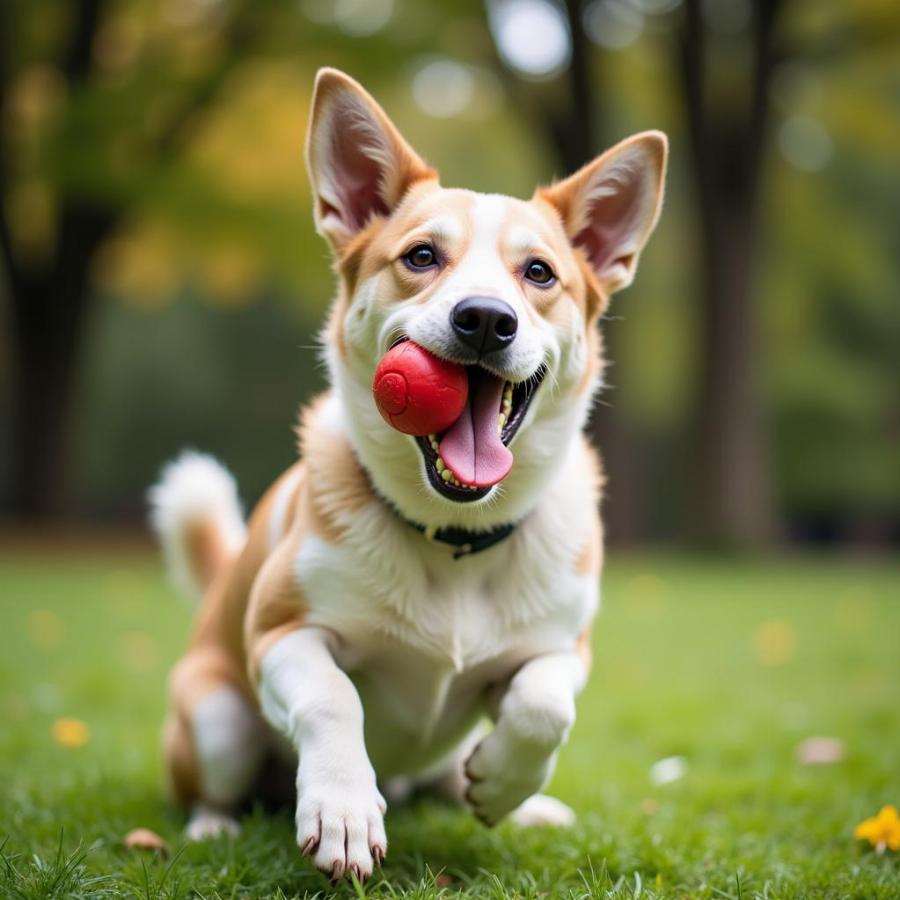The term “world’s most dangerous dogs” often sparks fear and controversy. While certain breeds have a reputation for aggression, it’s crucial to understand that a dog’s behavior is influenced more by factors like training, socialization, and individual temperament than by breed alone. This article delves into the complexities surrounding dog aggression, exploring the nuances of breed-specific legislation and focusing on responsible dog ownership practices for a safer environment for both people and pets.
Understanding Canine Aggression: It’s More Than Just Breed
What makes a dog “dangerous”? Is it purely genetics, or are there other contributing factors? The truth is, canine aggression is a complex issue shaped by a multitude of influences. While certain breeds may possess physical traits that make them capable of inflicting more damage, it’s essential to remember that any dog, regardless of breed, can bite.
The Role of Genetics and Environment
Genetics can play a role in predisposing certain breeds to specific behaviors, including aggression. However, these genetic predispositions are not deterministic. A dog’s upbringing, including early socialization, training, and overall environment, significantly impacts its behavior. A poorly socialized dog, even of a typically gentle breed, can exhibit aggressive tendencies.
Recognizing the Signs of Aggression
Understanding canine body language is crucial for identifying potential aggression. Signs to watch for include growling, snarling, baring teeth, lunging, and a stiff body posture. Recognizing these signs early can help prevent bites and ensure the safety of both the dog and those around it.
Navigating Breed-Specific Legislation: A Controversial Approach
Breed-specific legislation (BSL) aims to regulate or ban certain breeds deemed “dangerous.” However, the effectiveness of BSL is highly debated. Critics argue that BSL unfairly targets specific breeds while ignoring the importance of individual dog behavior and responsible ownership.
The Impact of BSL on Communities
BSL can have unintended consequences, such as creating a false sense of security and potentially leading to the euthanasia of well-behaved dogs simply because of their breed. Moreover, BSL often fails to address the root causes of dog bites, such as lack of training and socialization.
Focusing on Responsible Ownership
Instead of focusing on breed, many experts advocate for promoting responsible dog ownership practices. This includes providing proper training, socialization, and ensuring a safe and enriching environment for dogs.
Creating a Safe Environment for All: Responsible Dog Ownership is Key
Responsible dog ownership is the cornerstone of preventing dog bites and creating a harmonious relationship between humans and canines.
The Importance of Training and Socialization
Early socialization and consistent training are crucial for developing a well-behaved dog. Socialization exposes dogs to various people, animals, and environments, helping them learn appropriate social skills. Training teaches dogs basic obedience commands and helps them understand boundaries. dogs from coraline
Providing a Stimulating Environment
A bored or frustrated dog is more likely to exhibit undesirable behaviors, including aggression. Providing a stimulating environment with plenty of exercise, mental enrichment, and positive interaction can help prevent these issues.
 Chú chó đang chơi đồ chơi
Chú chó đang chơi đồ chơi
Conclusion: Moving Beyond Breed and Embracing Responsibility
The concept of the “world’s most dangerous dogs” is a simplification of a complex issue. While certain breeds may have a higher bite potential, focusing solely on breed ignores the crucial role of responsible ownership. By prioritizing training, socialization, and a stimulating environment, we can create a safer and more harmonious world for both dogs and humans. Remember, it’s not about the breed, it’s about responsible ownership.
FAQ
- Are certain breeds inherently more aggressive? While genetics can play a role, environment and training have a much larger impact on a dog’s behavior.
- Is breed-specific legislation effective? Studies show that BSL is often ineffective and can have unintended consequences.
- How can I prevent my dog from becoming aggressive? Early socialization, consistent training, and a stimulating environment are key.
- What are the signs of aggression in dogs? Growling, snarling, baring teeth, lunging, and a stiff body posture can indicate aggression.
- What should I do if I encounter an aggressive dog? Remain calm, avoid eye contact, and slowly back away. Do not run or make sudden movements.
- How can I find a responsible breeder? Research breeders carefully, ask questions about their breeding practices, and visit the breeding facility.
- Where can I learn more about dog training and behavior? Consult with a certified professional dog trainer or behaviorist.
Have other questions about dog breeds, behavior, and training? Explore more articles on our website!
Beaut Dogs is your trusted source for all things related to dog breeds, care, and training. We provide valuable insights and resources to help you become the best dog owner you can be. For personalized support and expert advice, please contact us via Email: [email protected]. Beaut Dogs is committed to helping you build a stronger bond with your canine companion.